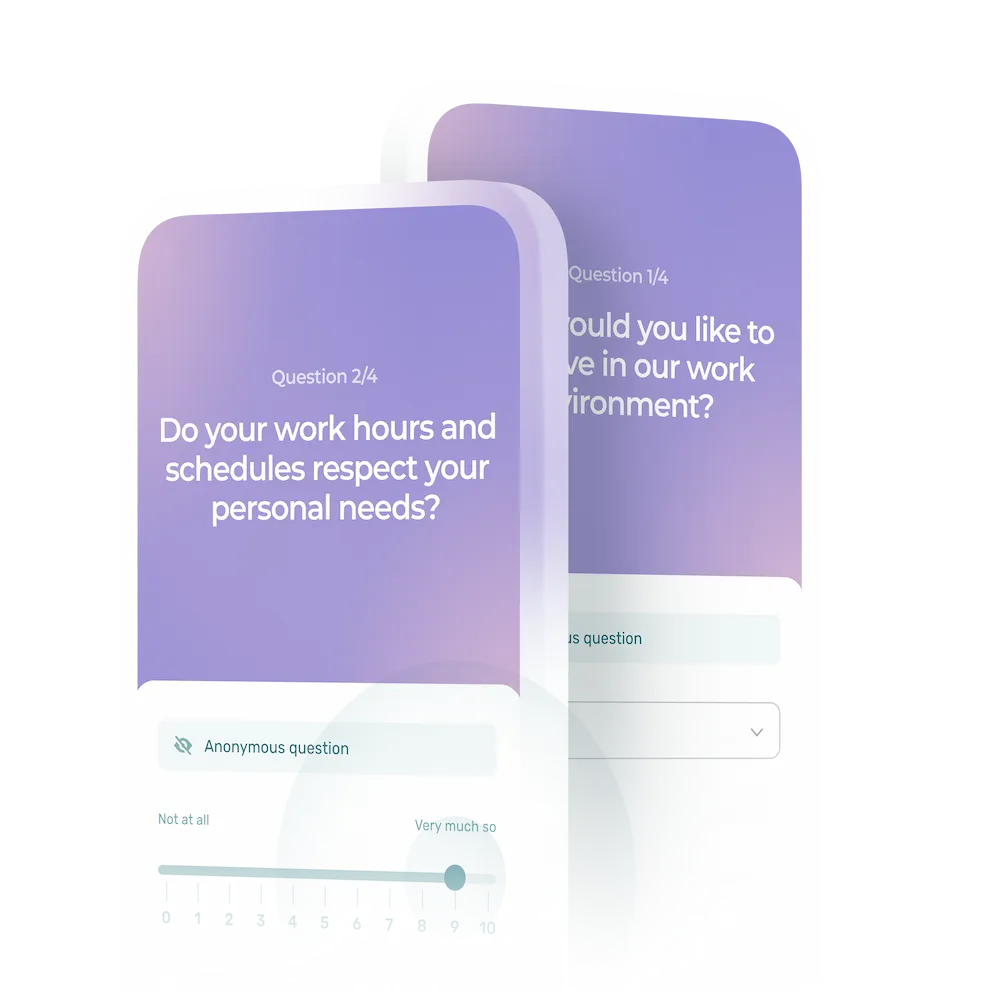In a competitive job market where recruiters are all but clambering over each other for candidates, it can be tempting to showcase an attractive but misleading employer brand. This should be avoided for a whole slew of reasons.
According to a LinkedIn study, 92% of employees would be willing to leave their current job to work for a company with a great reputation. A full 92%! 🤯
Unsurprisingly, in this context, the employer brand has become an integral part of most companies’ recruitment strategy. This being said, it can also harm a company’s reputation and even repel potential candidates if it doesn’t reflect your realities.
This post sheds light on:
- What an employer brand is
- What employee experience means
- How and why to align the two
What’s the Connection Between Employer Brand and Employee Experience?
I like to use a slightly caricatured analogy to explain the connection between these two concepts—think of your favourite fast-food chain. The employer brand is the ad you see of a burger in your Facebook feed, while the employee experience is the burger you are actually served when you go there.
In my experience, the two rarely look the same. Yet there should be no difference between: the externally conveyed image should reflect the internal reality. 🍔
The Employer Brand
Contrary to what one might think, the chief goal of the employer brand is not to attract talent but to retain your company’s existing talent.
What it is: the employee experience at your organization, as it is communicated externally.
What it is not: a marketing stunt to attract candidates.
A good employer brand is something authentic, lived and shared.
The Employee Experience
The employee experience encompasses not only people’s day-to-day experience at your company, but also candidates’ experience during the recruitment process.
What it is: the employee experience at your company, before, during and after their employment with you.
What it is not: what managers think employees experience at their company.
The employee experience reflects employees’ overall real-world experience at the organization.
In light of this information, how is your burger? Does the ad match what’s actually on the plate of your potential candidates?
Scenario
Put yourself in the shoes of a candidate who is subjected to a charm offensive throughout the hiring process, via the employer brand. The company first draws you in with a culture and values that you can relate to, then dangles attractive benefits, and finally convinces you to change jobs with a flexible schedule. You couldn’t be more thrilled. 😇
But the first days at the company turn out to be a letdown—the honeymoon comes to a crashing halt when you realize that nearly everything you were promised was a sham. It was all smoke and mirrors:
- The company’s stated values are absent internally and the company culture appears to be more like, “Do what you’re told and don’t ask questions.”
- Benefits only become available after a minimum of 3 months on the job.
- The schedule is flexible… but only if you’re willing to work the shifts you are assigned, without any possibility of trading with co-workers if necessary.
This is a perfect example of a company with a disconnect between their employee experience and their employer brand.
How Do You Build an Employer Brand That Reflects the Employee Experience?
Your employer brand may look great on paper and rack up likes on social media, but if it’s just a marketing gimmick, it may do you more harm than good. So how do you align it with your employee experience?
Let me first bust a myth: the employer brand is not a once-a-decade job for the HR manager. In fact, it can’t be produced at all—it’s something that already exists and that is continually shifting and evolving in pace with your company.
So, you never have to start from scratch. You simply need to focus on your employee experience!
An Annual Diagnosis Is a Must
Ask your employees why they like working at your company. Involve them in developing your employer brand. They are a reflection of your organization and play a key role in its standing and reputation.
So once a year, ask them about their experience working at your company. Please note that I’m not talking about an engagement survey, but about participative marketing in which you ask your employees for feedback on their employee experience, as a way to help you confirm or adjust your employer brand. These feedbacks could be either in form of text, images or videos which can be part of your overall employer brand marketing as blogs or video content marketing.
Take the time to explain your approach to your team. Ask questions specific to your employer brand. If you have time, assemble small working groups.
This will have multiple benefits. In addition to helping you confirm your brand’s alignment with your employee experience, it will help boost employee engagement. An employer brand that is truly representative of your employees will make them even prouder to work at your company.
💖 To make sure your sample of participants is viable and representative of your company at large, offer attractive incentives. For example, you can hold a draw for an extra wellness day from among the participants. Or offer merch to everyone who answers the survey.
Taking the Time to Do Things Right
Rome was not built in a day. Take your time and make sure you get things right. Don’t be in too much of a hurry. To make a good diagnosis, you need to consult with employees, do your research, and take your time.
Your employer brand must be consistent across your organization. This being said, each department might even have its own employer brand, since each one is different.
Taking up the example of a supermarket, cashiers and floor clerks have different realities and their employee experience will vary in certain respects. So, why not empower the managers of each department to play an active role?
They can build an employer brand with their team that is rooted in the company’s brand, but tailored to their own reality. Your core values remain the same, of course, but they can be adapted, taking into account the values specific to each department.
💖 Remember that an overly generic employer brand will leave people cold. When you try to please everyone, you please no one. If it is too marketing-oriented, it will lack authenticity and representativeness, and is more likely to harm you than help you.
Aligning Your Employer Brand and Employee Experience Is the Key to Success
If you only take away one idea from this post, it should be that to work on your employer brand, you should rely on the employee experience at your company. Authenticity is the linchpin. An honest employer brand will enable you to:
- Attract candidates who share your values
- Facilitate onboarding (what you see is what you get)
- Improve staff retention
- Boost employee engagement
- Positively impact your overall brand image
You have everything to gain by adopting a transparent and authentic approach. Your employer brand will shine for all the right reasons!









